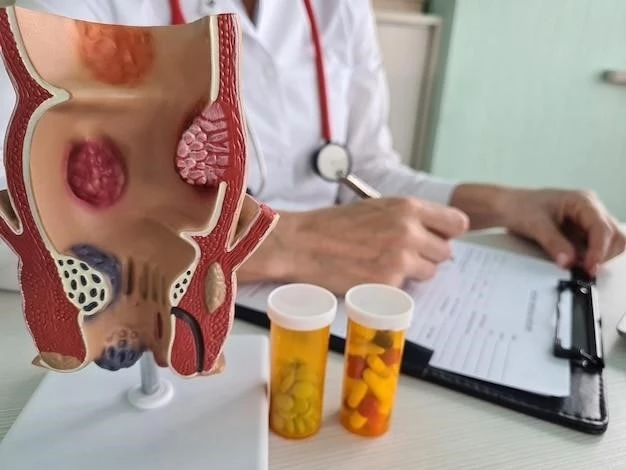Definition of Choroid Plexus Cysts
Choroid Plexus Cysts are fluid-filled sacs that may develop in the brain․ To understand this condition better, let’s explore the causes, symptoms, diagnosis, and treatment options available․
Causes of Choroid Plexus Cysts
Choroid Plexus Cysts are often considered a normal variant seen on prenatal ultrasounds, especially in the second trimester․ These cysts are usually harmless and may not cause any symptoms․ The exact cause of Choroid Plexus Cysts is not fully understood, but they are believed to develop when the brain produces more fluid than it can absorb, leading to small sacs forming in the choroid plexus – the part of the brain responsible for producing cerebrospinal fluid․ These cysts are typically filled with fluid and are located within the choroid plexus tissue․ While most Choroid Plexus Cysts are considered benign, they can sometimes be associated with genetic conditions such as trisomy 18․ It is essential to consult with a healthcare provider for a comprehensive evaluation and appropriate management if Choroid Plexus Cysts are detected during prenatal screenings or diagnostic tests․
Symptoms and Diagnosis of Choroid Plexus Cysts
Choroid Plexus Cysts often do not cause any symptoms in most cases and are incidentally found during routine prenatal ultrasound examinations․ However, in some instances, they may be associated with genetic conditions such as trisomy 18․ When symptoms do occur٫ they may include abnormal findings on prenatal ultrasound٫ though these are not specific to Choroid Plexus Cysts and may be indicative of other underlying issues․ If a healthcare provider suspects the presence of Choroid Plexus Cysts based on ultrasound or other diagnostic tests٫ further evaluations like genetic testing may be recommended to rule out associated conditions․ Diagnosis is typically made through imaging studies like ultrasound or MRI scans٫ which can visualize the cysts within the choroid plexus tissue․ It is crucial to work closely with a medical team to monitor and manage the situation appropriately٫ ensuring the best possible outcomes for both the individual and the developing fetus․
Treatment Options for Choroid Plexus Cysts
Most Choroid Plexus Cysts do not require treatment as they are typically benign and resolve on their own․ However, in cases where the cysts are associated with genetic conditions or other concerning factors, the treatment approach will depend on the underlying cause and potential risks involved․ Close monitoring through regular prenatal check-ups and ultrasounds is often recommended to track the size and status of the cysts․ If Choroid Plexus Cysts are found to be causing complications or linked to genetic abnormalities, genetic counseling and further diagnostic tests may be advised to assess the overall health of the fetus and determine appropriate management strategies․ It is essential for individuals with Choroid Plexus Cysts to work collaboratively with their healthcare providers to make informed decisions and ensure the best possible outcomes for themselves and their unborn child․
Choroid Plexus Cysts in Pregnancy
Choroid Plexus Cysts found during pregnancy are a common occurrence, often detected during routine ultrasound examinations․ While these cysts are typically harmless and tend to resolve on their own, they may sometimes be associated with genetic conditions․ It is crucial for expectant parents to remain informed and work closely with healthcare providers for proper monitoring and evaluation․ Genetic counseling may be recommended to assess any potential risks and provide comprehensive information about the implications of Choroid Plexus Cysts in pregnancy․ Regular prenatal care, including follow-up ultrasounds and consultations, can help ensure the well-being of both the mother and the developing fetus․ Open communication with medical professionals can help address any concerns and facilitate appropriate care throughout the pregnancy․
Choroid Plexus Cysts in Infants
Choroid Plexus Cysts can also be identified in infants, although they are more commonly detected prenatally during ultrasound screenings; In infants, these cysts are often incidental findings and may not require specific treatment, as they typically resolve without intervention․ However, healthcare providers may recommend follow-up evaluations to monitor the cysts over time․ It is important for parents to communicate openly with the pediatrician and specialists, if necessary, to ensure appropriate care and surveillance․ While Choroid Plexus Cysts in infants are generally benign, parental involvement in their child’s healthcare, regular check-ups, and adherence to medical recommendations are vital in providing the best possible outcomes for the child’s development and well-being․
Choroid Plexus Cysts and Developmental Delays
While Choroid Plexus Cysts themselves are typically benign and do not directly cause developmental delays, they may be associated with underlying genetic conditions that can impact a child’s development․ If Choroid Plexus Cysts are found in conjunction with other markers during prenatal ultrasounds or diagnostic tests, a thorough evaluation by healthcare professionals may be necessary to identify any potential concerns․ Early intervention services, such as physical therapy, speech therapy, and developmental assessments, can be beneficial in addressing developmental delays if they are present․ Parents should maintain open communication with healthcare providers to ensure appropriate monitoring and support for their child’s growth and development․ Seeking guidance from specialists and participating in early intervention programs can significantly contribute to improving outcomes for children who may be at risk for developmental delays․
Complications of Choroid Plexus Cysts
In general, Choroid Plexus Cysts are considered harmless and often resolve on their own without causing complications․ However, in rare cases, these cysts may be associated with genetic conditions like trisomy 18, which can lead to more severe complications․ It is essential for individuals with Choroid Plexus Cysts to undergo thorough evaluations to rule out any underlying issues and determine the appropriate management plan․ Complications associated with Choroid Plexus Cysts are typically related to the underlying conditions rather than the cysts themselves․ Regular monitoring, genetic counseling, and timely interventions if needed can help in addressing any potential complications and ensuring the best possible outcomes․ Consultation with healthcare providers can provide valuable guidance in managing any concerns related to Choroid Plexus Cysts and associated complications․

Research and Advances in Choroid Plexus Cysts
Ongoing research on Choroid Plexus Cysts focuses on improving our understanding of these fluid-filled sacs in the brain and their implications․ Scientists are exploring the genetic factors that may contribute to the development of Choroid Plexus Cysts to better identify individuals at risk and provide targeted interventions․ Advances in imaging technology and diagnostic tools are enhancing the accuracy of detecting and monitoring these cysts across different populations․ Additionally, research efforts aim to investigate the potential links between Choroid Plexus Cysts and developmental delays, paving the way for early interventions and improved outcomes․ Collaborative studies involving multidisciplinary teams are key to advancing knowledge, developing better treatment strategies, and optimizing the care of individuals affected by Choroid Plexus Cysts․ Stay informed about the latest research findings and consult healthcare professionals for personalized guidance based on the most recent advances in this field․
